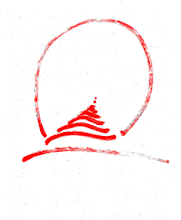- does working in groups degrade individual skills ?
You all know the familiar scenario: Many groups of approximately 5 students each. In each group two or three students drive the project, do the bulk of the work (80%) and the others are effectively passengers and take care of the remaining 20% of the work.
As teamwork and group building goes this works fine, it teaches skills that are required in all walks of life and it can be argued that this is actually what tends to happen in the workplace anyway.
The only casualties are the skills of the ‘passengers’.
This has been one of the main arguments against group work assessment in the past.
The other approach has been to eliminate groupwork (usually because of the ‘passenger phenomenon’) and to assess students only on their individual skills. This ensures that the each student actually DOES acquire a certain level of skills.
The casualty in this approach are teamwork skills. Teamwork skills are an essential component in any job and should be part of a University education. Most work is done in teams because they are more productive. Software programming and most professional engineering jobs benefit from a team approach. It is comparatively rare for professional individuals to work alone.
Open Combining the benefits of groupwork and individual work:
There is a way of combining groupwork and still ensuring students acquire individual skills in what are called ‘public assignments’.
A public assignment is an assignment which is well known before the test and allows students to work out solutions in teams, with friends.
Assessment is at an individual level, where each student is tested and must be able to complete the assignment tasks on her own.
Here are some practical steps for this approach to work best:
Ø The public assignment problem must not be so small it can be easily memorized with little understanding, nor should it be too difficult for a one or two hour test.
Ø Testing should be carried out in standard examination conditions i.e. students should not be able to copy others work nor bring outside work to the test.
Ø Skills assessment is carried out outside laboratory classes in a clearly defined way. The assessment criteria should be publicly known and students are advised to prepare for it.
Ø Assessment is best carried out by one person or in a standard way. This may be through an automated marking process, or by the lecturer or tutor.
In using the public assignments approach there have been some unexpected benefits –
Ø Non-performing students are identified early in the semester and can be contacted and requested to come in for extra help.
Ø Students see little advantage in attempting to get a delay in marking through simulated ‘illness’. In actual practice the incidence of medical certificates for illness at test times dropped dramatically when compared to the standard secret test questions approach.
Ø Students with medical certificates and absent due to illness do not require a new assignment.
Ø In most laboratories tutors spend most of their time marking and so have little or no time to tutor and help students. In our labs the tutors were totally relieved of any marking during laboratory times and so were able to help students for the entire time.
Ø We have found that many tutors find it difficult to move between the roles of tutor and assessor. Most tutors in our experience give a pass for little or minimal work thus masking student incompetence to both staff and the student.
Ø Marking carried out outside the laboratory along clearly defined guidelines has little such bias and competency issues are discovered early in the semester when there is still the possibility of intervention and recovery.
Ø Students often reported problems with different tutors marking to different standards, some were easy markers, others were disproportionately severe. Public assignments are marked to a consistent standard. To achieve this, marking best carried out by one person, or one method outside the laboratory times, and along well defined paths.
Ø It is easy to give students a second or third chance at the problem, with either a marks discount or some variation of the original problem.
Ø We have tested this approach with engineering problems and found that students not only had to focus on programming but also needed to carefully read the specifications of the public assignment. This was exactly the educational outcome we desired and matched what employers tell us they value in graduates.
Groupwork has always been a reality of study at any University, whether students worked in ad hoc friendship groups and then underwent individual assessment of or whether they worked in formal groups. It could even be said that a good support network of friends is a key ingredient of success at University.
By using public assignments, students are encouraged to work in teams and yet each student is assessed on their individual skill level. Passengers are eliminated and the best of groupwork and individual work is obtained.
This approach is clearly communicated to the students. Students are encouraged to work in small teams to share, help each other and learn in groups.
© 2003-2009 heiko rudolph
light weight travel computer - lightest so far
-
Haiko:
I figured out the most light weight travel computer laptop system: Samsung
Tab2, with Bluetooth keyboard, handles files, internet, messen...
12 years ago





No comments:
Post a Comment